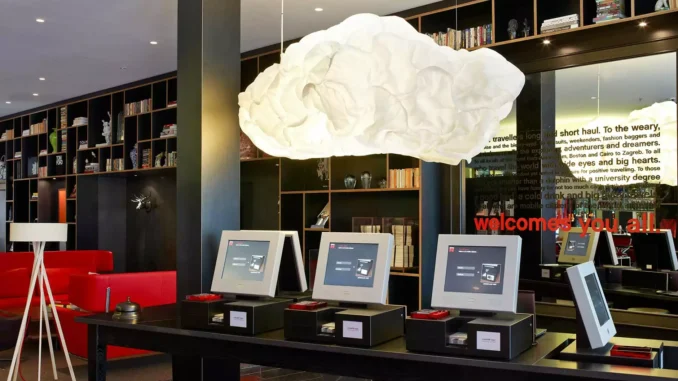
6.28.2024
A new research study highlights the importance of hotel technology in enhancing the guest experience. Four out of five working Americans expressed a willingness to work remotely from their hotel, with preferences varying from the comfort of their hotel room (69%) to more social settings like the hotel pool or spa (25%) and hotel bar or restaurant (25%).
To accommodate this shift, hotels are increasingly investing in technology solutions that facilitate seamless remote work. Keyless room entry and in-room smart home devices are among the top features desired by nearly a third of guests (34% and 43%, respectively). Additionally, mobile room entry (27%) and digital ordering (24%) are becoming essential amenities for modern travelers.
The research study, commissioned by hotel technology solution provider Mews, and conducted by OnePoll, also indicates a growing shift towards automated and self-service options. More than 40% of travelers prefer to check in via a hotel’s website, app, or digital kiosk, and nearly 80% are open to staying at a hotel with a completely automated front desk or self-service kiosk. This trend is driving hotels to adopt advanced check-in technologies to streamline the guest experience.
AI is playing an increasingly important role in the hospitality sector, with 36% of respondents admitting they have used AI for travel recommendations. This technology enables hotels to gather detailed guest information before arrival, allowing customer service teams to create personalized experiences.
Hotel workers are also preparing for an uptick in technology usage among guests in 2024. A quarter of hotel staff expect guests to check in more frequently via digital platforms compared to previous years. This anticipation is prompting hotels to invest in user-friendly digital interfaces and robust backend systems to handle increased digital interactions.
According to the study, the “perfect” hotel for travelers in the US should offer fast Wi-Fi (70%), a smart TV (54%), and online or self-service check-in/check-out (37%). These preferences highlight the critical role of technology in meeting guest expectations and enhancing their overall stay.
